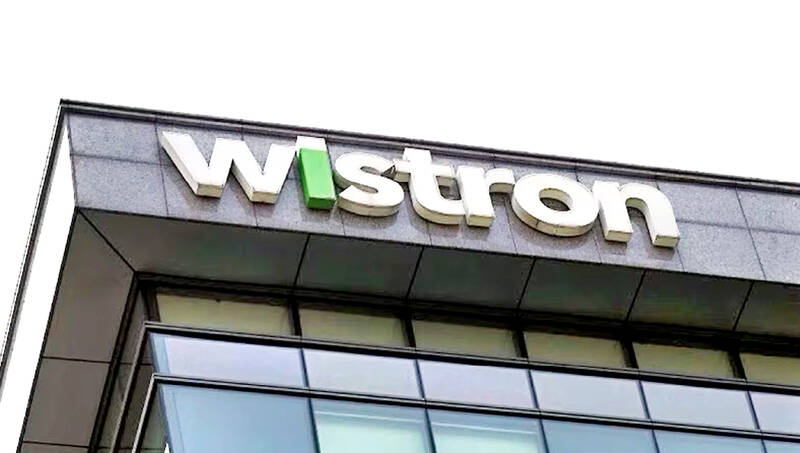Tata Group is set to seal a deal to become India’s first homegrown iPhone maker after Wistron Corp (緯創) yesterday agreed to sell a plant in the southern part of the country to the conglomerate.
Wistron’s board approved the sale of Wistron InfoComm Manufacturing (India) Private Ltd to Tata for US$125 million, the Taiwanese electronics manufacturer said in a statement.
The unit operates an iPhone assembly plant near Bengaluru, a person familiar with the matter said.

Photo: Fang Wei-chieh, Taipei Times
Tata, an airline-to-software conglomerate, has been in talks for more than a year to take over the plant as it seeks to forge closer ties with Apple Inc.
The deal advances India’s efforts to create local contenders to challenge China’s dominance in electronics, which has been jeopardized by political tensions with the US.
Apple’s iPhones are mainly assembled by Taiwanese firms such as Pegatron Corp (和碩) and Hon Hai Precision Industry Co (鴻海精密), which is known as Foxconn Technology Group (富士康科技集團) outside Taiwan.
Wistron is one of three Taiwanese iPhone manufacturers in India, along with Foxconn and Pegatron.
It has sought to diversify its business beyond thin-margin iPhone manufacturing into areas such as servers, agreeing to sell its iPhone production business in China to a competitor in 2020.
After the deal has been confirmed by both parties, the companies would seek regulatory approval, Wistron said.
Tata has taken other steps to increase its business with Apple. It has accelerated hiring in its factory in Hosur, near Bengaluru, where it produces iPhone components.
That plant stands on several hundred hectares of land where Tata could add iPhone manufacturing lines in the next few years.
Tata has also announced that it plans to launch 100 Apple stores in the country of 1.4 billion people.

Vincent Wei led fellow Singaporean farmers around an empty Malaysian plot, laying out plans for a greenhouse and rows of leafy vegetables. What he pitched was not just space for crops, but a lifeline for growers struggling to make ends meet in a city-state with high prices and little vacant land. The future agriculture hub is part of a joint special economic zone launched last year by the two neighbors, expected to cost US$123 million and produce 10,000 tonnes of fresh produce annually. It is attracting Singaporean farmers with promises of cheaper land, labor and energy just over the border.

US actor Matthew McConaughey has filed recordings of his image and voice with US patent authorities to protect them from unauthorized usage by artificial intelligence (AI) platforms, a representative said earlier this week. Several video clips and audio recordings were registered by the commercial arm of the Just Keep Livin’ Foundation, a non-profit created by the Oscar-winning actor and his wife, Camila, according to the US Patent and Trademark Office database. Many artists are increasingly concerned about the uncontrolled use of their image via generative AI since the rollout of ChatGPT and other AI-powered tools. Several US states have adopted

A proposed billionaires’ tax in California has ignited a political uproar in Silicon Valley, with tech titans threatening to leave the state while California Governor Gavin Newsom of the Democratic Party maneuvers to defeat a levy that he fears would lead to an exodus of wealth. A technology mecca, California has more billionaires than any other US state — a few hundred, by some estimates. About half its personal income tax revenue, a financial backbone in the nearly US$350 billion budget, comes from the top 1 percent of earners. A large healthcare union is attempting to place a proposal before

Nvidia Corp’s GB300 platform is expected to account for 70 to 80 percent of global artificial intelligence (AI) server rack shipments this year, while adoption of its next-generation Vera Rubin 200 platform is to gradually gain momentum after the third quarter of the year, TrendForce Corp (集邦科技) said. Servers based on Nvidia’s GB300 chips entered mass production last quarter and they are expected to become the mainstay models for Taiwanese server manufacturers this year, Trendforce analyst Frank Kung (龔明德) said in an interview. This year is expected to be a breakout year for AI servers based on a variety of chips, as